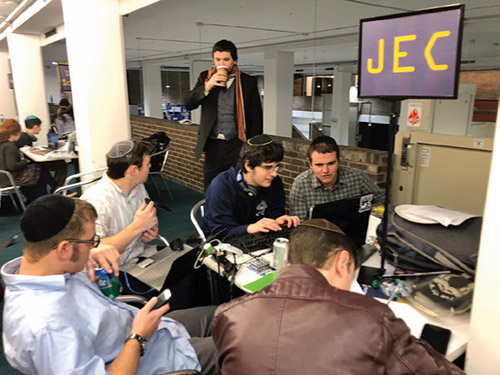
On Wednesday, five members of the JEC CIJE team attended the first annual CIJE Hackathon. At the event, we were presented with a problem to solve: How can doctors systematically know a patient’s medical history? Our solution was to create a keychain device with a self-contained editable database which each doctor would be able to access, view and edit when in close proximity to the activated keychain.
While our team was initially skeptical that this was even possible, senior Noam Preil insisted that it could be done and, over 1,000 lines of code later (!), proved that he was correct. Through much design and creativity, we were able to keep patients’ information secure and eliminate any possible obstacles caused by slow or non-existent internet connections.
In short, a patient could attach this small device to his car keys. At any visit to a doctor, he could switch on the device and, using the Wi-Fi password and URL, the doctor could then log on to his database, review the medications that he has already been prescribed and make any necessary changes to the list.
Our project was entirely software-based and so complex in nature, that even some CIJE representatives had a difficult time fully understanding what we had done from our short three-minute presentation. Those who “got it” noted that this was one of the most impressive projects presented at the competition.
By Yishai Mandel, senior













